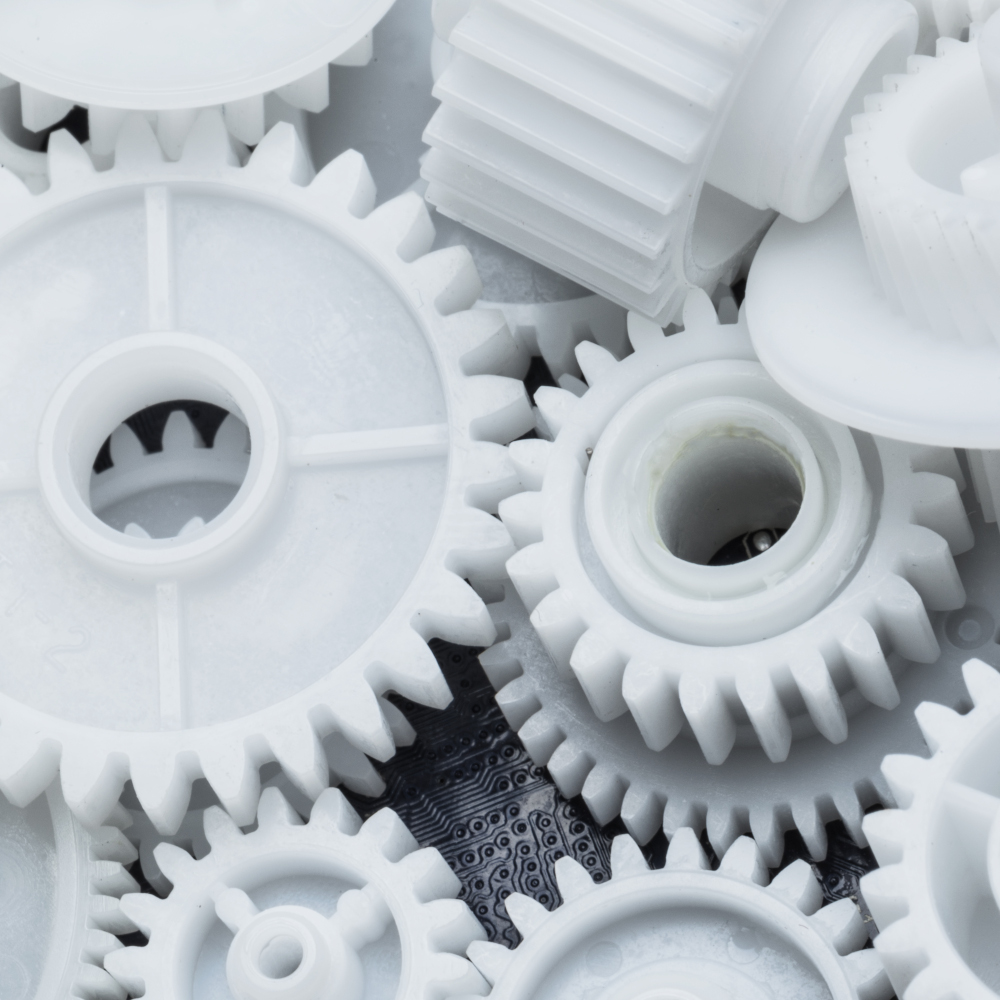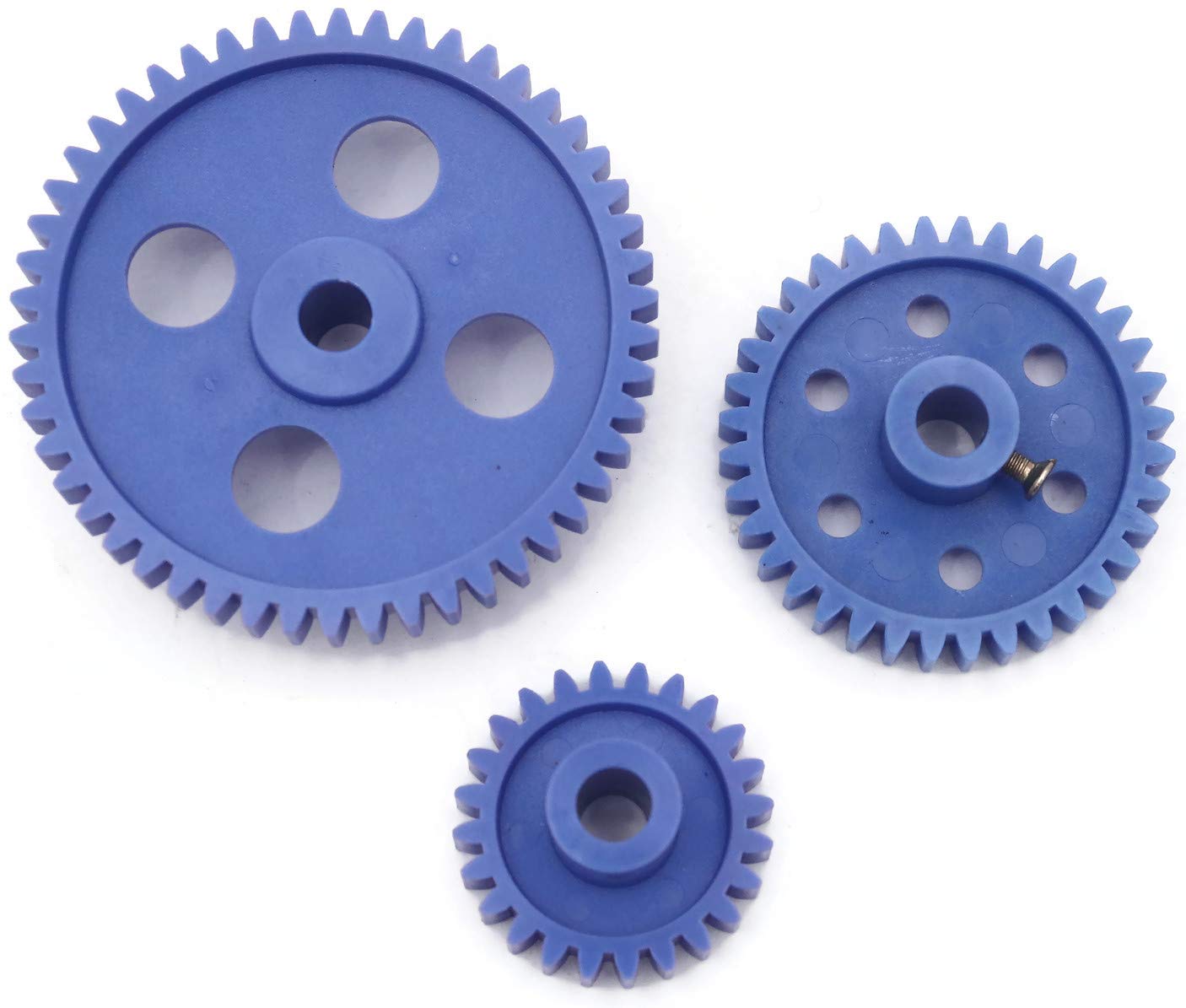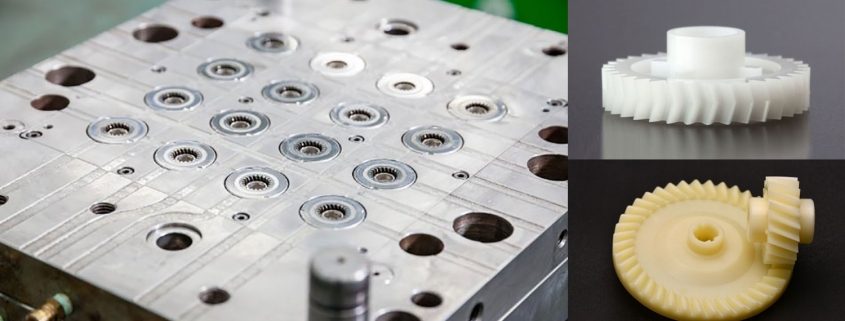Product Description
Plastic Casting Oil Nylon gear made by CNC lathe
Mc nylon, means monomer casting nylon, is a kind of engineering plastics used in comprehensive industries, has been applied almost every industrial field.
The caprolactam monomer is first melted, and added catalyst, then poured it inside moulds at atmosphere pressure so as to shape in different castings, such as: Rod, plate, tube. The molecule weight of mc nylon can reach 70, 000-100, 000/mol, 3 times than pa6/pa66. Its mechanical properties are much higher than other nylon materials, such as: Pa6/pa66. Mc nylon plays a more and more important role in the material list recommended by our country.
Since the end of 1980’s, HangZhou engineering plastics industireis company has devoting herself on developing the technology of mc nylon modification, greatly extended the applications in different industries. Basing on the mc nylon, reinforced with variety of additives during the reaction, such as lubricant, molybdenum disulfide, graphite glass fiber, carbon fiber etc, to improve the properties, higher performance of wear-resistance, corrosion-resistance, self-lubrication, vibration-absorption, noise-absorption. At the same time, as the technics and structure of the moulds is quite simple, so that it can be manufactured in lower cost, becomes the ideal substitutes of bronze, stainless steel, babbitt alloy, ptfe and so on.
Oil nylon (green)
Oil nylon(green)is the new engineering plastics that developed by HangZhou engineering plastics industireis company in the later 1980’s by importing the advanced technology from nylacast co., ltd, uk, was the first authentic lubricating nylon that builds the liquid lubricant system during the processing stage, which makes its coefficient of friction is 50% lower than the general pa6 or pa66, the wear-resistance is 10 times than the general ones. Oil nylon is specially developed for the parts of non-self-lubrication, heavy-loading and low-speed-running, which obviously resulted in a substantial increase in bearing life- 5 times that of general pa6 and 25 times that of phosphor bronze! The lubricant contained within the material will not drain, adsorb or dry out and never needs replenishment. The uniform distribution of the lubricant throughout the product guarantees the constant performance of the parts over the whole service life and improvements in rate of wear, sliding frictional properties, abrasion resistance and stick slip performance, which are just a few of the benefits offered by this material. Oil nylon has been successful in considerable enlarging the application of nylon in many industries and specifically for some un-lubricated running parts.
Other casting nylon:
Oil nylon + carbon (black)
Oil nylon added carbon, has the very compact and crystal structure, which is better than the general casting nylon in the performance of high mechanical strength, wear-resistance, anti-aging, uv resistance and so on. It is suitable for making the bearing and other wear mechanical parts.
Oil mc901(blue)
This improved mc nylon, has striking blue color, which is better than general pa6/pa66 in the performance of toughness, flexibility, fatigue-resistance and so on. It is the perfect material of gear, gear bar, transmission gear and so on.
Mc nylon + mso2(light black)
Mc nylon added mso2 can remain the impact-resistance and fatigue-resistance of casting nylon, as well as it can improve the loading capacity and wear-resistance. It has a wide application in making gear, bearing, planet gear, seal circle and so on.
| Property | Item No. | Unit | MC Nylon (Natural) | Oil Nylon+Carbon (Black) | Oil Nylon (Green) | MC90 (Blue) | MCNylon+MSO2(Light Black) | |
| Mechanical Properties | 1 | Density | g/cm3 | 1.15 | 1.15 | 1.135 | 1.15 | 1.16 |
| 2 | Water absorption (23ºCin air) | % | 1.8-2.0 | 1.8-2.0 | 2 | 2.3 | 2.4 | |
| 3 | Tensile strength | MPa | 89 | 75.3 | 70 | 81 | 78 | |
| 4 | Tensile strain at break | % | 29 | 22.7 | 25 | 35 | 25 | |
| 5 | Compressive stress (at 2%nominal strain) | MPa | 51 | 51 | 43 | 47 | 49 | |
| 6 | Charpy impact strength (unnotched) | KJ/m 2 | No brak | No break | ≥50 | No BK | No break | |
| 7 | Charpy impact strength (notched) | KJ/m 2 | ≥5.7 | ≥6.4 | 4 | 3.5 | 3.5 | |
| 8 | Tensile modulus of elasticity | MPa | 3190 | 3130 | 3000 | 3200 | 3300 | |
| 9 | Ball indentation hardness | N/mm 2 | 164 | 150 | 145 | 160 | 160 | |
| 10 | Rockwell hardness | – | M88 | M87 | M82 | M85 | M84 | |
/* January 22, 2571 19:08:37 */!function(){function s(e,r){var a,o={};try{e&&e.split(“,”).forEach(function(e,t){e&&(a=e.match(/(.*?):(.*)$/))&&1
| Material: | PA |
|---|---|
| Size: | According to Drawing or Sample |
| Color: | Natural, White, Black, Green, Blue |
| Tooling: | CNC Lathe |
| Transport Package: | Packing in Paper Carton and Wooden Pallet |
| Specification: | RoHS |
| Customization: |
Available
| Customized Request |
|---|

Can plastic gears be used in food and beverage processing machinery?
Plastic gears can be used in food and beverage processing machinery in certain applications. Here’s a detailed explanation of their suitability:
Plastic gears offer several advantages that make them a viable choice for certain food and beverage processing machinery applications:
- Corrosion Resistance: Many plastic materials, such as certain types of polypropylene (PP) or polyethylene (PE), exhibit excellent resistance to corrosion and chemical attack. This makes them suitable for use in food and beverage processing environments where exposure to acidic or alkaline substances, cleaning agents, or food ingredients is common.
- Hygienic Properties: Plastic gears can be designed to have smooth surfaces without any cracks, crevices, or pores, which can harbor bacteria or contaminants. This makes them easier to clean and sterilize, promoting hygienic conditions in food and beverage processing machinery.
- Lightweight: Plastic gears are generally lighter than metal gears, which can be advantageous in applications where weight reduction is desired. The reduced weight can simplify machinery design, reduce energy consumption, and ease handling during maintenance or equipment assembly.
- Noise Reduction: Plastic gears, with their inherent damping characteristics, can help reduce noise levels in food and beverage processing machinery. This is particularly beneficial in settings where noise control is crucial for maintaining a comfortable working environment.
- Non-Toxicity: Food-grade plastic materials, such as certain types of polyethylene terephthalate (PET) or polytetrafluoroethylene (PTFE), are approved for contact with food and beverages. These materials comply with regulatory standards for food safety and do not leach harmful substances into the processed products.
- Design Flexibility: Plastic gears offer greater design flexibility compared to metal gears. They can be molded into complex shapes and incorporate features such as self-lubrication, noise reduction, or specific gear profiles to optimize performance for food and beverage processing applications.
However, it’s important to note that there are certain considerations and limitations when using plastic gears in food and beverage processing machinery:
- Operating Conditions: Plastic gears have temperature limitations and may not be suitable for applications involving high temperatures or extreme temperature fluctuations. It’s essential to select plastic materials that can withstand the specific temperature range of the processing environment.
- Load Requirements: Plastic gears typically have lower load-bearing capacities compared to metal gears. They may not be suitable for heavy-duty applications that require withstanding high torque or significant forces. Careful consideration should be given to the torque and load requirements of the specific machinery application.
- Application-Specific Requirements: Some food and beverage processing machinery applications may have unique requirements, such as high-speed operation, abrasive ingredients, or frequent cleaning cycles. It’s crucial to assess whether plastic gears can meet these specific requirements and evaluate the need for additional reinforcements or modifications.
Overall, plastic gears can be successfully used in food and beverage processing machinery for suitable applications, offering benefits such as corrosion resistance, hygienic properties, lightweight design, noise reduction, and compliance with food safety standards. However, proper material selection, design considerations, and a thorough understanding of the application’s requirements are important to ensure the reliable and safe operation of the machinery.

How do you prevent premature wear and degradation in plastic gears?
Preventing premature wear and degradation in plastic gears requires implementing various measures and considerations. Here’s a detailed explanation of how to achieve this:
1. Material Selection: Choose a plastic material with suitable properties for the specific application. Consider factors such as strength, stiffness, wear resistance, and compatibility with operating conditions. Opt for materials that have good resistance to wear, fatigue, and environmental factors to minimize premature degradation.
2. Gear Design: Pay attention to the design of the plastic gears to minimize wear and degradation. Optimize the tooth profile, gear geometry, and load distribution to reduce stress concentrations and ensure even load sharing among the teeth. Incorporate features such as fillets, reinforcements, and optimized tooth profiles to enhance the gear’s durability.
3. Lubrication: Proper lubrication is essential to reduce friction, minimize wear, and prevent premature degradation. Choose lubricants that are compatible with the plastic material and the operating conditions. Ensure adequate lubrication by following manufacturer recommendations and implementing proper lubrication techniques such as oil bath, grease, or dry lubrication.
4. Operating Conditions: Consider the operating conditions and make adjustments to prevent premature wear and degradation. Control operating temperatures within the recommended range for the plastic material to avoid thermal degradation. Avoid excessive speeds or loads that can lead to increased friction and wear. Minimize exposure to harsh chemicals, UV radiation, or abrasive particles that can degrade the plastic material.
5. Maintenance: Implement regular maintenance practices to prevent premature wear and degradation. Conduct periodic inspections to identify signs of wear or damage. Replace worn or damaged gears promptly to prevent further degradation. Follow recommended maintenance schedules for lubrication, cleaning, and any other specific requirements for the plastic gears.
6. Proper Installation: Ensure that plastic gears are installed correctly to minimize wear and degradation. Follow manufacturer guidelines and recommendations for installation procedures, such as proper alignment, torque values, and fastening techniques. Improper installation can lead to misalignment, increased stress concentrations, and accelerated wear.
7. Optimized Load Distribution: Design the gear system to ensure even load distribution across the gear teeth. Consider factors such as tooth profile, tooth width, and the number of teeth to optimize load sharing. Uneven load distribution can lead to localized wear and premature degradation of specific gear teeth.
8. Environmental Protection: Protect plastic gears from harsh environmental conditions that can accelerate wear and degradation. Implement measures such as sealing mechanisms, coatings, or encapsulation to shield the gears from exposure to chemicals, moisture, UV radiation, or abrasive particles.
9. Quality Manufacturing: Ensure high-quality manufacturing processes to minimize defects and inconsistencies that can compromise the durability of plastic gears. Use reputable suppliers and manufacturers that adhere to strict quality control measures. Conduct thorough inspections and testing to verify the quality of the gears before installation.
By considering these preventive measures, such as material selection, gear design, lubrication, operating conditions, maintenance, proper installation, load distribution optimization, environmental protection, and quality manufacturing, it’s possible to minimize premature wear and degradation in plastic gears, ensuring their longevity and performance.

What are the advantages of using plastic gears in machinery?
Plastic gears offer several advantages when used in machinery. Here’s a detailed explanation of the advantages of using plastic gears:
- Lightweight: Plastic gears are significantly lighter in weight compared to metal gears. This lightweight characteristic is particularly beneficial in applications where weight reduction is important, as it can contribute to energy efficiency, lower inertia, and reduced wear on supporting components.
- Low Noise and Vibration: Plastic gears have inherent damping properties, which help reduce noise and vibration levels during operation. The ability to absorb and dissipate vibrations leads to quieter machinery, making plastic gears suitable for applications where noise reduction is desired, such as in consumer electronics or office equipment.
- Corrosion Resistance: Certain plastic materials used in gear manufacturing exhibit excellent resistance to corrosion and chemicals. This makes plastic gears suitable for applications in corrosive environments, where metal gears may suffer from degradation or require additional protective coatings.
- Self-Lubrication: Some plastic materials used for gear manufacturing have self-lubricating properties. These materials can reduce friction and wear between gear teeth, eliminating the need for external lubrication. Self-lubricating plastic gears can simplify maintenance requirements and reduce the risk of lubricant contamination or leakage in machinery.
- Cost-Effective: Plastic gears can be more cost-effective compared to metal gears, especially in large-scale production. Plastic materials are often less expensive than metals, and the manufacturing processes for plastic gears can be more efficient, resulting in lower overall production costs. This cost advantage makes plastic gears an attractive option for applications where budget considerations are important.
- Design Flexibility: Plastic gears offer greater design flexibility compared to metal gears. Plastic materials can be easily molded into complex shapes, allowing for the creation of custom gear profiles and tooth geometries. This design flexibility enables gear optimization for specific applications, improving performance, efficiency, and overall machinery design.
- Electrical Insulation: Plastic gears provide electrical insulation properties, which can be advantageous in machinery where electrical or electronic components are in close proximity to the gears. The electrical insulation helps prevent the risk of electrical short circuits or interference caused by metal gears coming into contact with conductive parts.
It’s important to note that while plastic gears offer unique advantages, they also have limitations. They may not be suitable for applications requiring extremely high torque, high temperatures, or where precise positioning is critical. The selection of plastic gears should consider the specific requirements of the machinery and the mechanical properties of the chosen plastic material.


editor by CX 2024-03-27